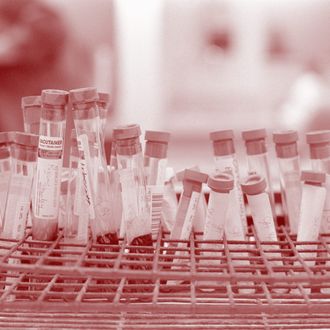
Gene testing, which is quickly going mainstream thanks to falling prices and mass-market companies like 23andMe, has brought with it some really weird situations that humanity has never encountered before. For the first time ever, it’s possible to know exactly what your odds are of developing a disease that will likely kill you. What do you do with that information? How do you integrate it into the rest of your life without letting it seize control?
In a really good article she wrote for BuzzFeed, Jessica Furseth, a journalist living in London, explains what life has been like since she was diagnosed with Lynch syndrome, a genetic condition that increases the chance of DNA copy errors, giving her a 20 percent chance of developing a number of cancers, ranging from bowel to endometrial to stomach, kidney, or a number of other cancers (the percentage varies from person to person who has Lynch syndrome, and Furseth is toward the lower end). She was tested for the condition after watching a number of relatives die of cancer, or in one case survive, but just barely.
“I’m still struggling to work out what it even means to have a certain percentage chance of illness,” she writes. Furseth, who is in her mid-30s, explains that, “as you go deeper into the genetic predisposition rabbit hole, you get a lot of facts and figures, not all of them useful. As an individual, all these numbers feel almost irrelevant; either this happens to me or it doesn’t. Maybe I should just forget about all of this, cross my fingers, and hope for the best?”
Furseth notes that 20 percent is a somewhat, well, weird number in a context like this. “As relieved as I am to know that my risk is lower than I thought it was at first,” she writes, “it still doesn’t give me a clue what I’m supposed to do with the number I do have.” And one of the things that makes Furseth’s article work — I’m guessing it is going to be read by many of the increasing number of people who get bad news after having their genes tested — is her honesty in acknowledging that she simply hasn’t figured out any way to really resolve that uncertainty. It’s just something she has to live with, and living with it is a process, not a problem that can be solved. This is a good article about an increasingly common situation, and you should read it.




